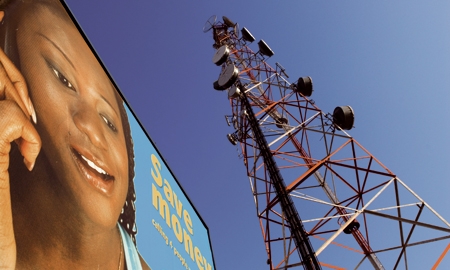
Back in 1992, Ghana launched the first cellular mobile network in sub-Saharan Africa, and for the past twenty years the country has been a pioneer in African telecommunications. It was also among the first countries on the continent to provide its public with the ability to connect to the Internet and one of the first to introduce Asymmetric digital subscriber line (ADSL) broadband services. Ghana also led the way in market liberalisation and deregulation, privatising Ghana Telecom (GT) as early as 1996. Thanks to this early deregulation Ghana has gone on to become one of most exciting and competitive mobile markets in Africa.
At present the country has six competing operators which includes major telecommunications players like MTN, Vodafone Ghana, Millicom and Zain (which was taken over by Bharti of India in 2010).The staggered launch of these mobile phone providers, which saw Zain joining in 2008 and Nigerian company Globacom due to launch this year, has meant that strong growth in mobile phone ownership is sustained. While the voice market may be approaching saturation at more than 75% penetration by mid-2011, enormous potential in both subscriber and average revenue per user (ARPU) terms exists in the area of 3G mobile broadband services which have already surpassed most existing ADSL services within just a few short months of their launch.
| “It’s important to look back to 1996 in order to understand where we have come in just 15 years. In large part this success has to be attributed to mobile telephone technology...” Mr Paarock VanPercy, Director General of the National Communications Authority |
Set up in 1996, the National Communication Authority (NCA) in Ghana first came about at a time when teledensity of the country was only 0.3%, meaning there were three landlines for every one thousand people. Today the NCA exists to regulate the communications industry by setting and enforcing high standards of competence and performance upon its six competing operators.
Mr. Paarock VanPercy was appointed Director General of the National Communications Authority on 1st June 2010. He came to the NCA from a career in accountancy, investment banking and corporate management dating back twenty five years. Mr. VanPercy brings to the Ghanaian Information and Technology sector accomplished credentials in delivering value and growth through the provision of sound management, achieving corporate goals through adherence to international best practice. When discussing the history and importance of telecommunications in Ghana, Mr. Paarock says: “We are currently looking at a teledensity of maybe 80 percent. Subscriber numbers are in excess of 20 million in a population of just under 25 million. It’s important to look back to 1996 in order to understand where we have come in just 15 years. In large part this success has to be attributed to mobile telephone technology... Cable infrastructure is a different story all together in terms of cost, the time and manpower it takes to construct. We also recognise that a lot needs to be done in order to achieve universal access... We admit we still have some challenges in the areas of data and broadband.”
Interestingly, Ghana leads the way in mobile number portability (whereby one can change provider without changing one’s number). Number portability encourages and facilitates competition in the sector, and currently the average porting time in Ghana is just four hours, with 99% of customers managing to port within 24 hours – a speed faster than many western countries.
The potential for growth in the Ghanaian information and communication technology sector is strong: at present an estimated 7% of all investments in Ghana go to the telecommunications sector. An independent third party report by Delta Partners, which gives an overview of the contribution made by the telecommunications industry to Ghana’s overall economy, indicates that last year the six major operators paid in the region of 600 million Ghanaian Cedi in taxes and levies, representing 10% of government income for that year alone.
0 COMMENTS